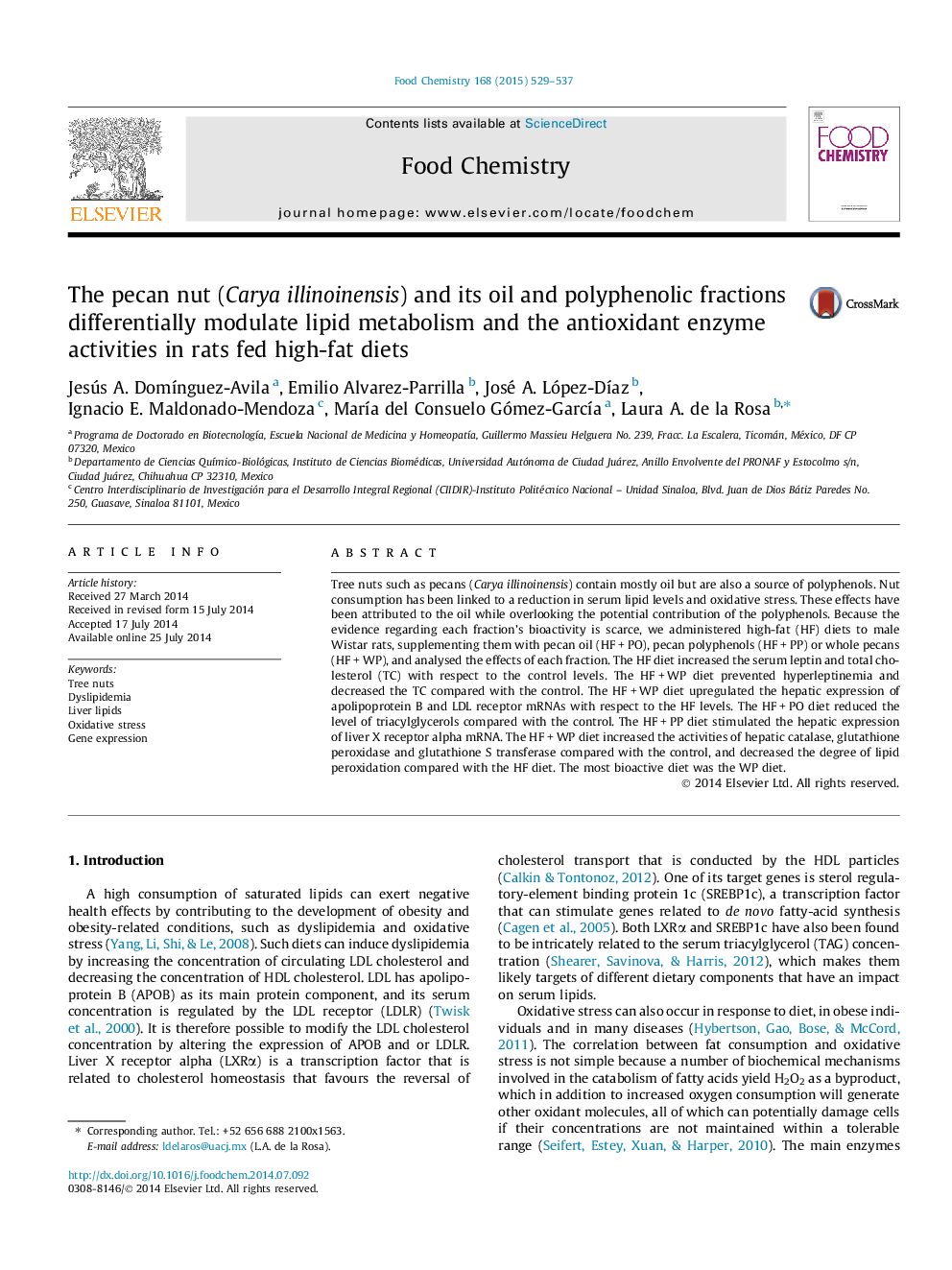| Article ID | Journal | Published Year | Pages | File Type |
|---|---|---|---|---|
| 7595428 | Food Chemistry | 2015 | 9 Pages |
Abstract
Tree nuts such as pecans (Carya illinoinensis) contain mostly oil but are also a source of polyphenols. Nut consumption has been linked to a reduction in serum lipid levels and oxidative stress. These effects have been attributed to the oil while overlooking the potential contribution of the polyphenols. Because the evidence regarding each fraction's bioactivity is scarce, we administered high-fat (HF) diets to male Wistar rats, supplementing them with pecan oil (HFÂ +Â PO), pecan polyphenols (HFÂ +Â PP) or whole pecans (HFÂ +Â WP), and analysed the effects of each fraction. The HF diet increased the serum leptin and total cholesterol (TC) with respect to the control levels. The HFÂ +Â WP diet prevented hyperleptinemia and decreased the TC compared with the control. The HFÂ +Â WP diet upregulated the hepatic expression of apolipoprotein B and LDL receptor mRNAs with respect to the HF levels. The HFÂ +Â PO diet reduced the level of triacylglycerols compared with the control. The HFÂ +Â PP diet stimulated the hepatic expression of liver X receptor alpha mRNA. The HFÂ +Â WP diet increased the activities of hepatic catalase, glutathione peroxidase and glutathione S transferase compared with the control, and decreased the degree of lipid peroxidation compared with the HF diet. The most bioactive diet was the WP diet.
Related Topics
Physical Sciences and Engineering
Chemistry
Analytical Chemistry
Authors
Jesús A. DomÃnguez-Avila, Emilio Alvarez-Parrilla, José A. López-DÃaz, Ignacio E. Maldonado-Mendoza, MarÃa del Consuelo Gómez-GarcÃa, Laura A. de la Rosa,
